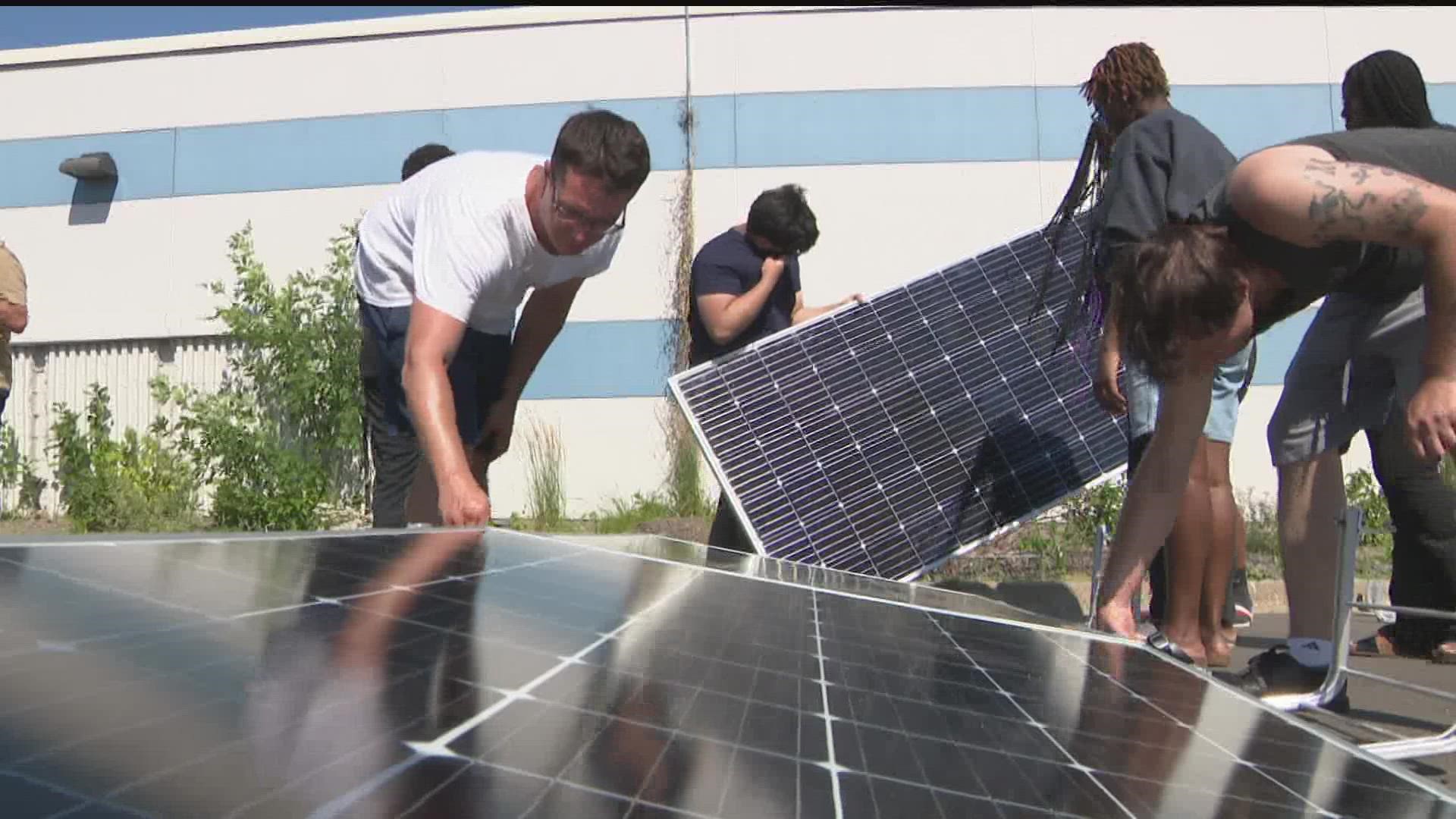MINNEAPOLIS — Three Minneapolis neighborhoods will implement "resilience hubs" in the near future, outfitting buildings with solar rooftops and battery storage to create microgrids that can generate power even in the event of a natural disaster.
The investment is part of Xcel Energy's Integrated Distribution Plan, which the Minnesota Public Utilities Commission approved last month.
"It's a big deal for us," said Jamez Staples, founder of Renewable Energy Partners that will lead one of the hubs in North Minneapolis. "Historically, communities like North Minneapolis haven't gotten these type of preventative investments, on the front side."
In North Minneapolis, the hub will include three Minneapolis Public Schools buildings near Plymouth Avenue. If the power were to go out — as it did for thousands in the neighborhood after a tornado ripped through in May 2011 — these buildings could provide cooling space, refrigerated food, power for cell phones and medical devices, and other emergency services.
Staples says he expects the infrastructure to be up and running within the next year, aided by the workforce training center that Renewable Energy Partners operates on Plymouth Avenue.
"We're in the community, we work in the community, we're literally here," Staples said. "It's an opportunity for them to actually participate in skills training here in this building, then walk down the street and be able to go to work."
The other two hubs will be placed in south Minneapolis neighborhoods, centering around Sabathani Community Center and the Minneapolis American Indian Center.
Tera Dornfeld, a rates analyst and public engagement specialist at the Minnesota Public Utilities Commission, said the first three sites will serve as a model for future hubs.
"We're excited about it as a commission, because it provides an opportunity for Xcel Energy to learn about microgrids," Dornfeld said. "In the event of a natural hazard — which we hope wouldn't happen but are becoming a more regular reality in the face of climate change — these buildings will be able to become islanded, which means using their battery they will be able to have energy in that specific location."
The concept of an islanded microgrid seems especially enticing on a day like Monday, when temperatures in Minneapolis reached the mid-to-upper 90s.
"They're going to be producing their own energy and storing their own energy," Dornfeld said of the hubs. "There's an extra level of security, maybe another way to think about 'resiliency,' just knowing that you can count on that."
Watch more local news:
Watch the latest local news from the Twin Cities in our YouTube playlist:

